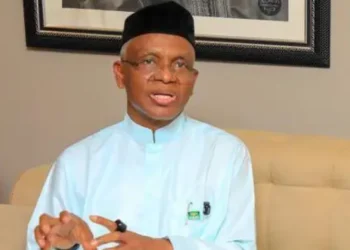The Chairman of the Economic and Financial Crimes Commission (EFCC), Ola Olukoyede, has disclosed how the commission has managed and deployed the huge sums recovered from corruption-related cases in recent years.
Speaking at a media briefing in Abuja to mark his second anniversary in office, Olukoyede said the EFCC recovered a total of ₦566.3 billion and $411.6 million, which have been redirected into key national programmes.
According to him, parts of the funds were invested in critical government initiatives such as the Students Loan Scheme and the Consumer Credit Scheme, designed to expand access to education and improve citizens’ financial wellbeing.
“Part of the funds recovered by the commission in the last two years was invested in critical social investment programmes: the Students Loan Scheme and the Consumer Credit Scheme,” Olukoyede said.
The EFCC chairman further revealed that several government agencies, including the Niger Delta Development Commission (NDDC), Asset Management Corporation of Nigeria (AMCON), Federal Inland Revenue Service (FIRS), and National Health Insurance Authority (NHIA), have benefited from recovered funds and assets.
He added that properties seized from corrupt individuals have been repurposed for official use, transforming them into public service facilities.
Olukoyede highlighted that the commission recorded major asset recoveries within the last two years. A total of 1,502 properties were seized—402 in 2023, 975 in 2024, and 125 in 2025.
Among the notable assets are the 753 duplexes in Lokogoma, Abuja, and Nok University, which has now been renamed the Federal University of Applied Sciences, Kachia, Kaduna State.
Olukoyede said the EFCC under his leadership is prioritising corruption prevention over enforcement, describing it as a more sustainable and cost-effective approach.
He noted that the establishment of the Fraud Risk Assessment and Control (FRAC) unit was part of this preventive strategy. The unit, he explained, monitors budget implementation in Ministries, Departments, and Agencies (MDAs) to detect risks and prevent fund diversion.
“The EFCC has prioritised corruption prevention as a cheaper alternative to enforcement. FRAC uses risk-based approaches to monitor MDA budgets and prevent leakages,” he stated.
The EFCC boss revealed that in the past two years, the commission received 19,318 petitions, investigated 29,240 cases, filed 10,525 court cases, and secured 7,503 convictions.
He assured Nigerians that the EFCC would continue to pursue all corruption-related cases with impartiality and transparency, whether they involve public officials or private individuals.
Olukoyede also noted that some long-standing cases had been revisited under his administration, including those involving Fred Ajudua, former PDP Chairman Haliru Bello Mohammed, former National Security Adviser Sambo Dasuki, and former NSITF Managing Director Ngozi Olojeme.
“Cases once thought abandoned have been revived to ensure justice is served,” he added.












